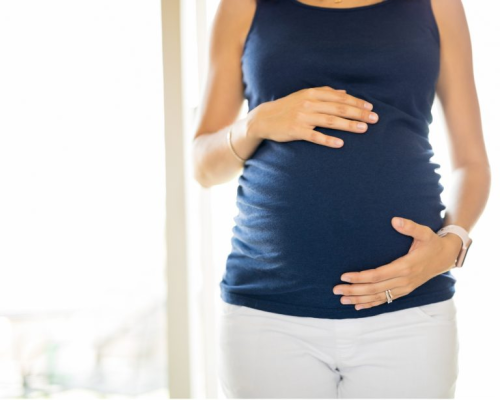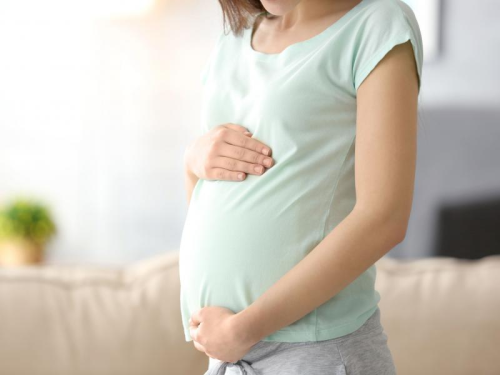
The Impact of Ectopic Pregnancy on Fertility
As a fertility specialist, I’ve seen my share of challenges. Every patient brings a unique story and a set of circumstances that shape their fertility journey. But there’s one issue that often feels like an emotional and physical hurdle: ectopic pregnancy. It’s something that not only affects a woman’s immediate health but can also have long-term consequences on her fertility. Over the years, I’ve had countless conversations with patients about how an ectopic pregnancy can alter the course of their reproductive health, and I’d like to share one such experience.
One of the most memorable cases I’ve worked on was with a patient named Laura, a woman in her early 30s who came to me after suffering an ectopic pregnancy in her left fallopian tube. Laura had no prior history of fertility issues, but after this pregnancy, everything changed. She was devastated—not only by the loss of the pregnancy but by the fear that it might prevent her from ever getting pregnant again.
It’s easy to understand why someone like Laura might feel this way. When an ectopic pregnancy occurs, the fertilized egg implants outside the uterus, often in one of the fallopian tubes. It can be a life-threatening condition, leading to the need for emergency surgery. But beyond the immediate health risks, the long-term consequences can be significant, especially when it comes to fertility.

What is an Ectopic Pregnancy?
An ectopic pregnancy occurs when a fertilized egg attaches outside the uterus, usually in one of the fallopian tubes. This can lead to complications, as the growing embryo cannot survive in such an environment, and the pregnancy must be terminated. In many cases, if left untreated, an ectopic pregnancy can rupture, causing internal bleeding and potentially endangering the woman’s life.
Dr. Sarah Johnson, a renowned reproductive endocrinologist, often says, “Ectopic pregnancies are one of the most serious conditions we treat. The emotional toll on patients is significant, and it’s not just about the immediate physical recovery but about what it means for their future fertility.”
For many women, like Laura, an ectopic pregnancy is the first major fertility roadblock. But the story doesn’t end there. Understanding the long-term impact of an ectopic pregnancy on fertility is crucial for patients and doctors alike.

How Does Ectopic Pregnancy Affect Future Fertility?
The impact of an ectopic pregnancy on future fertility depends largely on how the condition is treated and whether it results in any damage to the fallopian tubes or other reproductive organs.
- Fallopian Tube Damage: The most common long-term consequence of an ectopic pregnancy is damage to the fallopian tube. Since the fallopian tubes play a critical role in transporting eggs from the ovaries to the uterus, any damage or scarring can affect a woman’s ability to conceive naturally. In some cases, if the tube is severely damaged, it may need to be removed entirely.
- Increased Risk of Another Ectopic Pregnancy: Having had one ectopic pregnancy increases the risk of having another. The chances of a second ectopic pregnancy are higher if there’s a history of pelvic infections, endometriosis, or if the first pregnancy resulted in tubal damage.
- Reduced Fertility: The risk of infertility increases if both fallopian tubes are damaged or blocked. While there are treatments like in vitro fertilization (IVF), which bypasses the fallopian tubes entirely, these options come with added costs and complexities.
- Emotional Toll: Beyond the physical impact, the emotional consequences of an ectopic pregnancy can be profound. Many women experience feelings of grief, guilt, and anxiety about future pregnancies. This emotional burden can affect a woman’s overall fertility journey, as stress and anxiety can also impact reproductive health.
In my experience, many women—like Laura—are understandably overwhelmed by these fears. But there is hope, and there are ways to move forward.
Diagnosing and Treating Ectopic Pregnancy
The diagnosis of an ectopic pregnancy typically involves a combination of blood tests (to measure hormone levels) and an ultrasound. In many cases, a woman will present with symptoms such as abdominal pain, spotting, and dizziness. If an ectopic pregnancy is suspected, it’s critical to act quickly, as a ruptured tube can lead to life-threatening complications.
Once diagnosed, treatment options depend on the severity of the ectopic pregnancy:
- Medication: In some cases, if the ectopic pregnancy is caught early and the embryo is not developing rapidly, a medication called methotrexate may be used to stop the pregnancy from growing. This allows the body to absorb the tissue naturally without surgery.
- Surgical Treatment: If the ectopic pregnancy is advanced or if the tube is at risk of rupturing, laparoscopic surgery may be required. During this procedure, the surgeon removes the ectopic pregnancy, and sometimes, a portion of the fallopian tube is also removed if there’s significant damage.
Dr. Emily Roberts, another expert in the field, explains, “The key to improving fertility after an ectopic pregnancy is early detection. The quicker we can intervene, the less likely there is to be permanent damage to the fallopian tubes or other reproductive organs.”
Moving Forward After an Ectopic Pregnancy
After the immediate crisis of an ectopic pregnancy, many patients are understandably concerned about their future fertility. However, the path forward is not always as bleak as it may initially seem. In my experience, with the right care and guidance, many women go on to have healthy pregnancies, even after a difficult experience like an ectopic pregnancy.
In Laura’s case, after the removal of her damaged tube, we were able to focus on her remaining tube and her overall reproductive health. We closely monitored her cycles and performed testing to ensure her uterus was healthy. We also worked on her emotional recovery, addressing her fears and anxiety about future pregnancies. Several months later, Laura conceived naturally and gave birth to a healthy baby boy.
While an ectopic pregnancy is a difficult experience, it doesn’t necessarily mean that future pregnancies are impossible. Advances in fertility treatments, including IVF, provide many women with a path to motherhood. Even with one fallopian tube, many women are still able to conceive naturally or with assisted reproductive technologies.
The Emotional Journey
It’s essential to address the emotional side of recovering from an ectopic pregnancy. The emotional toll can linger long after the physical healing has taken place. Many women may feel fear, anger, or sadness, and these feelings can affect their fertility journey. It’s crucial to offer support, whether through counseling, support groups, or simply a compassionate ear.
Dr. Sarah Johnson emphasizes, “It’s important to recognize that the psychological impact of an ectopic pregnancy can be just as challenging as the physical. Providing emotional support is an essential part of the recovery process.”
Conclusion
Ectopic pregnancy can be a devastating experience, both physically and emotionally. However, it doesn’t have to define a woman’s fertility journey. With early diagnosis, proper treatment, and emotional support, many women can overcome the effects of an ectopic pregnancy and go on to have successful pregnancies. If you’ve experienced an ectopic pregnancy, remember that you are not alone. There are paths to recovery, and there are options available to help you achieve your dreams of becoming a parent.
As I tell my patients, the road to parenthood is rarely a straight line—but there is always hope, and there is always a way forward.



